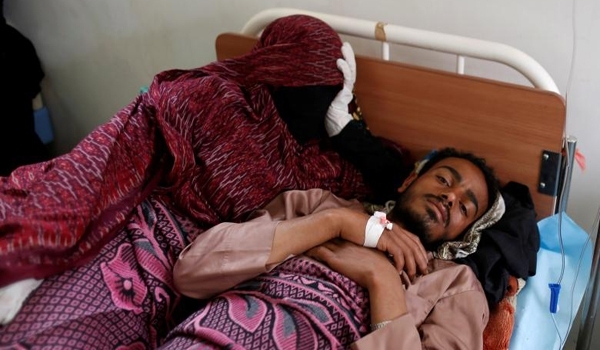
RNA - Speaking by phone after visiting Yemen, the agency’s regional director said he had never seen a cholera outbreak of that size in the country, which already is contending with the risk of a famine and a collapse of the health care system because of the war, Al-Manar reported.
He added that half the cholera cases in Yemen belong to children and parents have little recourse because many hospitals and clinics are closed or lack supplies.
Cappelaere was named UNICEF’s director for the Middle East and North Africa last year, worked for the agency in Yemen from 2009 to 2012.
“We are responding to a major crisis without having the basics,” he said, adding that “the reality is incredibly dire.”
Cappelaere said UNICEF was calculating that without significant intervention, “within a few weeks’ time” the number of Yemen cases could reach 250,000 to 300,000.
“Cholera doesn’t need a permit to cross a checkpoint or a border, nor does it differentiate between areas of political control,” he added.
The United Nations has announced that the cholera outbreak in Yemen has claimed the lives of nearly 600 people in about a month amid a deadly Saudi military campaign against the impoverished Arab country.
Saudi Arabia has been striking Yemen since March 2015 to restore power to fugitive president Mansour Hadi, a close ally of Riyadh. The Saudi-led aggression has so far killed at least 14,000 Yemenis, including hundreds of women and children.
Despite Riyadh's claims that it is bombing the positions of the Ansarullah fighters, Saudi bombers are flattening residential areas and civilian infrastructures.
According to several reports, the Saudi-led air campaign against Yemen has drove the impoverished country towards humanitarian disaster.
Nearly 3.3 million Yemeni people, including 2.1 million children, are currently suffering from acute malnutrition. The Al-Saud aggression has also taken a heavy toll on the country’s facilities and infrastructure, destroying many hospitals, schools, and factories.
847/940